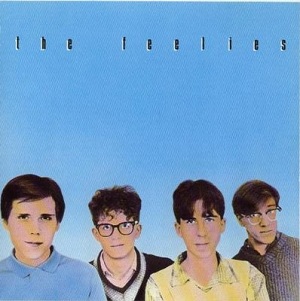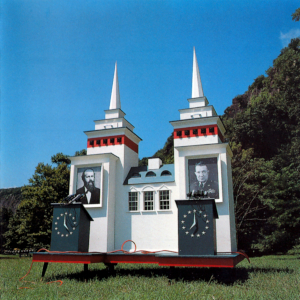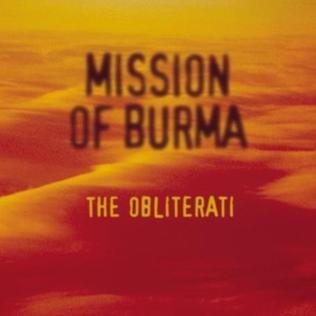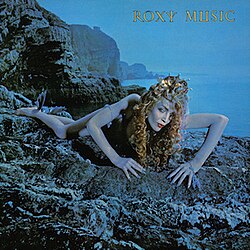Cindy Lee’s mastermind Patrick Flegel released what’ll certainly go down as one of the best reviewed albums of 2024 (Pitchfork already named it the fourth best of the DECADE so far), their double album Diamond Jubilee*.
Diamond Jubilee is a 32-track monster of hazy pop and psychedelic rock, like a Nuggets compilation from a world where The Velvet Underground topped the charts with The Beach Boys and Kenneth Anger films shared the theaters with Beach Party Bingo. It’s melodious, yet swimming in reverb – imagine: “You Must Remember This” recorded at the bottom of Norma Desmond’s pool.
It’s dance music for the depressed. It’s nostalgic for a past that never was. It’ll inspire obsessives to dig into lyrics to try to parse the band from its creator, the drag performer Flegal, but it’s also a good mindless Youtube stream to study/relax/choom to. Because of its breadth and range, I would like to consider it as a candidate for this year’s Smorgasbord Album.
I should probably define that.
The ideal album is 8-12 songs, about 40 minutes of music, that fits together as a cohesive whole. It’s a cheeseburger. Every bite is good, but each bite is a little different. Some bites have more lettuce and tomato than beef. Some bites have pickles, like some songs have synthesizers. Sometimes a band half-asses the lyrics and puts a song second-to-last on the album. That bite is mostly bun. That’s not to say these cheeseburgers don’t have variety. A band may swap out havarti for American, add BBQ sauce and bacon, or sub the beef with a veggie patty – that’s an acoustic album – but at the end of the day, they’re cheeseburgers.
But sometimes a band brings more to the grill than two all beef patties, special sauce, lettuce, cheese, pickles, onions and a sesame seed bun. Sometimes they bring the grocery store, and they exercise their wildest cooking techniques, and they make a spread, or as ABBA would say, a smörgåsbord.
The Beatles made a cheeseburger with Sgt. Pepper’s Lonely Hearts Club Band, but they made the archetypal smorgasbord with “The White Album.” The Clash’s self-titled debut is a cheeseburger, but Sandinista! is a smorgasbord. Guns N’ Roses’ Appetite for Destruction is a sloppy rock ‘n’ roll cheese burger, but its follow-ups Use Your Illusion 1 & 2: two overflowing smorgasbords.
A smorgasbord has a sampling of everything a band does well, and at least a few examples of something they do not. The Beatles’ so-called “White Album” has gorgeous acoustic ballads like “Blackbird” and “Julia,” roaring hard rock like “Back in the USSR” and “Helter Skelter,” and enjoyable psychedelic weirdness like “Happiness is a Warm Gun” and “Glass Onion.” All A pluses. But it also has a halfway successful attempt at ska “Ob-La-Di, Ob-La-Da,” a joke that’s not as funny as George Harrison thinks it is with “Piggies,” and eight-and-a-half minutes that probably introduced pop audiences to musique concrete – “Revolution #9” – that no sober person would want to hear again. But that’s how a smorgasbord works. Not every dish is delicious. The lutefisk might be top notch, but the smoked eel might leave something to be desired. However, only a really picky eater or music listener could come away from a smorgasbord without a full belly.
How do you determine if you’re listening to a smorgasbord? Use the checklist**:
- Smorgs are looong. In Sweden, a smorgasbord (the food kind) can run to seven courses. Does the potential smorgasbord have more than a dozen songs?
- Are two or more instrumental tracks?
- Does the band not associated with country/rap/electronica make one or more country/rap/electronic tracks? Is there a spoken word section (‘90s rap skits/comedy albums excluded)?
- Does the album have at least one track that you absolutely loathe, and two or more that you feel like skipping halfway through?
- Does it still contain tracks that may be considered among the band’s best?
- Would you make a playlist of your favorite tracks off the album?
** If four or more, call it a smorg.
The rationale for assembling a smorgasbord varies from artist to artist. In 1972, the 24-year-old Todd Rundgren released the multi-genre double album smorgasbord Something/Anything, in which he produced and played just about every instrument, as a showcase for his talent. While nominally a piano-playing folk rocker, Something/Anything touches on everything from soft rock to blue-eyed soul to powerpop to a digression on production errors with examples. “This is called hiss,” he explains to listeners over a wall of hiss. Something/Anything proved its point, and Rundgren has made a career as both a successful pop musician and producer ever since.
Some smorgasbords aren’t created with such dramatic ambitions. Indie punk legends The Minutemen had an album of songs ready to go, but decided to stretch it into a double to create Double Nickels on the Dime to match their hometown rivals Hüsker Dü, who cut their own double Zen Arcade a few months earlier. Double Nickels is considered one of the best of the 1980s, but even the band admitted they ran out of gas by the end, naming side four “Chaff.”
However, I think the most common reason bands create smorgasbords – something that should cause a band’s fans some alarm – is that they’re not sure which direction they want to take their music, so they take it in every direction at once. And that’s symptomatic of a band that’s about to call it quits. Speaking of the “White Album,” John Lennon said, “the break-up of the Beatles can be heard on that album.” Its recording sessions were contentious, rife with bickering and, according to George Harrison, “ego.” For the first time ever, the bandmates’ significant others (especially Yoko Ono) sat in on the recording, which disrupted the band’s communication. During these sessions, the usually dynamic Lennon-McCartney partnership began splintering. It didn’t help that they reportedly disliked each others’ songs.
Ultimately all four Beatles only recorded together on 16 of the album’s 30 tracks. Less than 500 days after the release of the “White Album,” The Beatles would break up.
If smorgasbords don’t necessarily portend impending doom for a band, they should at least be considered a check engine light. The Clash recorded Sandinista!, released the good, but not great, Combat Rock, and rattled on a as shell of themselves after guitarist Mick Jones and drummer Topper Headon were dismissed to record their final album, 1985 unloved Cut the Crap (note to bands: if you want to include the word “crap” in the title of your album, you better be sure you’re not making it).
Sometimes when a band releases a smorgasbord, the band itself is actually D.O.A. While on their press tour for Speakerboxxx/A Love Below, Outkast assured their audience that while their new album had a Big Boi half and an André 3000 half, they were still a band, and would continue as such. Alas, that turned out to not be true. Functionally, Speakerboxxx and A Love Below are solo albums for their respective creators. (Funnily enough, when uncoupled from A Love Below, Speakerboxxx makes for a regular cheeseburger of a Big Boi album, but even as a solo piece, the kaleidoscopic A Love Below STILL makes for a smorgasbord. There’s a shitload of music on that album.)
You’ve noticed no doubt that every smorgasbord I’ve mentioned is a double. So are all doubles smorgasbords?
Not quite.
While the double format surely gives a band room to spread – which threatens to tip an album toward smorgasbord-status – not all doubles are quite unruly enough to be considered smorgs. The Rolling Stones’ Exile on Main St. had a druggy and disjointed conception and recording, but the final product hangs together so well that it’s less of a smorgasbord than a masterpiece. There are no bad dishes on Main St.
I can’t say the same for The Smashing Pumpkins’ Mellon Collie and the Infinite Sadness, which I think starts feeling same-y over its two hour runtime, but it has a cohesion that smorgasbords do not. However much I may like or dislike classic doubles like The Who’s Tommy or Genisis’s The Lamb Lies Down on Broadway, I can’t argue that they’re smorgs because their bands are working with a focus that, say, The Beatles weren’t when they made the “White Album.”
All of this brings me back to Diamond Jubilee: it’s not a smorgasbord. Cindy Lee are too singular in their purpose and uniform in their sound to call Jubilee a smorgasbord. Cindy Lee recreate a radio station from a past that never existed, but they don’t recreate the whole dial. There are no bum songs, genre exercises, or experiments that don’t land. There is just an unbroken vibe and songs…lots of songs.
While Diamond Jubilee is not a smorgasbord, unfortunately Cindy Lee seems to be following one very smorgasbord-ian trope. They’re retiring.”THIS WILL BE CINDY’S LAST AMERICAN TOUR,” their website said earlier this year. At least we have the music.
*You can only find Diamond Jubilee streaming exclusively (and without ads) on Youtube, or you can download it from Cindy Lee’s GeoCities website for a donation of $30 Canadian dollars at https://www.geocities.ws/ccqsk/. Oooope, and it just showed up on Bandcamp.







